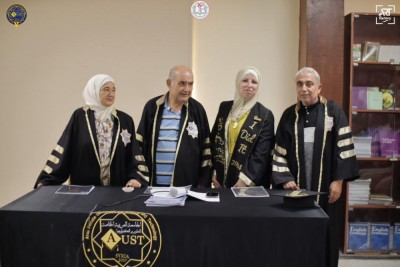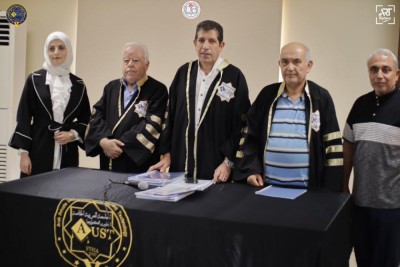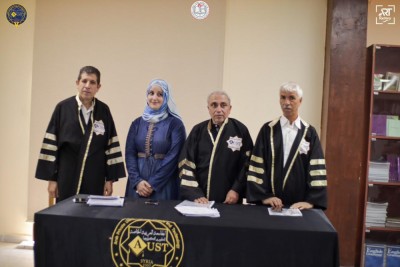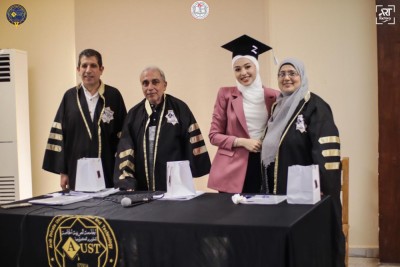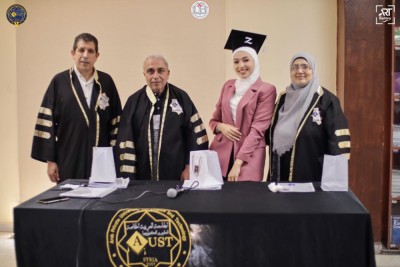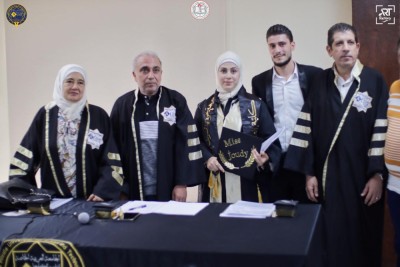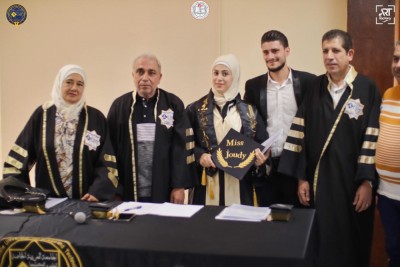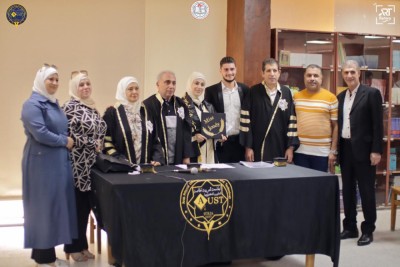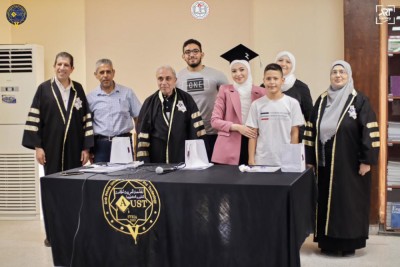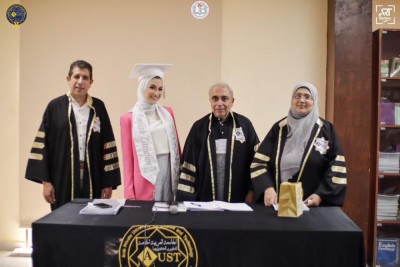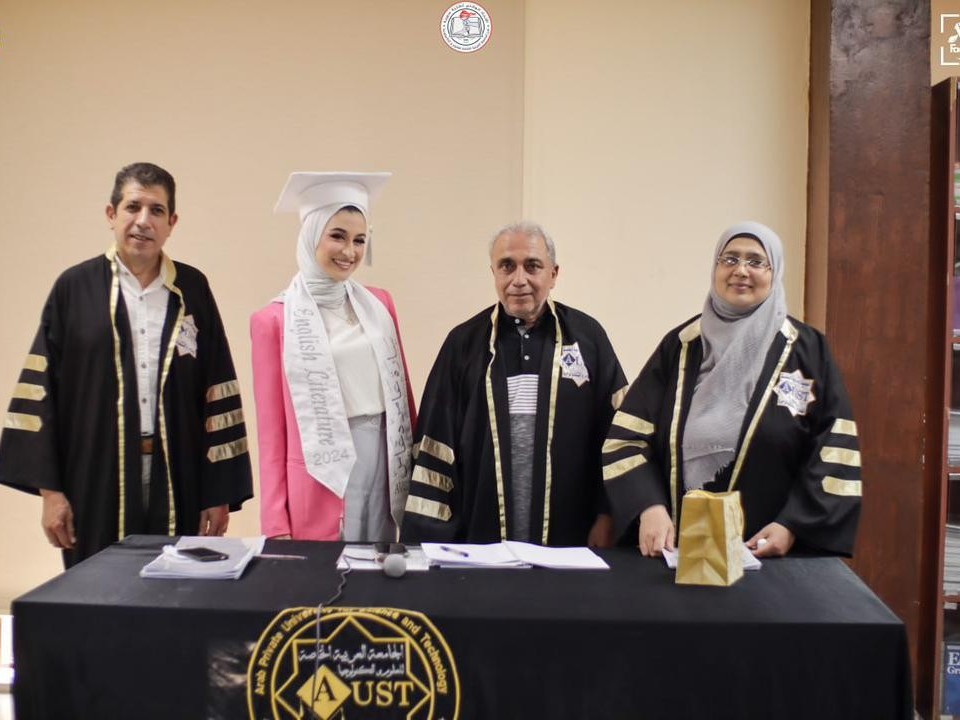Graduation projects for students of the College of Translation and Languages for the summer semester of the academic year 2023-2024
The College of Translation at the Arab University for Science and Technology held interviews for the graduation projects of male and female students of the College of Translation. The students presented distinguished projects that reflect the importance of translation in enhancing cultural and cognitive communication between peoples.
The submitted projects include a group of literary and technical translations, in addition to studies on modern translation techniques and their impact on the quality of texts. The members of the jury praised the quality of the ideas presented, stressing that these projects reflect the students' ability to understand linguistic and cultural challenges and provide innovative solutions that contribute to the development of this field.
In a statement by one of the members of the jury, he said: "The projects presented by the students were extremely important, as they reflect the effort and deep research they have put in. Translating texts accurately and correctly is vital in today's world, and these projects represent a step towards enhancing professionalism in this field."
For their part, the students expressed their pride and honor in reaching the graduation stage, as they confirmed that this achievement is the result of their efforts and the support of their families. One of the students said: "Our study journey was full of challenges, but we were able to achieve our dream thanks to the support we received from our families and teachers. We are excited to apply what we learned in serving our community."
Another student added: "This day represents the culmination of years of work and study. We believe that the projects we have presented will contribute to raising the level of translation in our country and enhance cultural communication."
These projects are an important step towards enhancing the role of youth in developing the translation sector, which contributes to achieving sustainable development and enhances the country's ability to face linguistic and cultural challenges.
